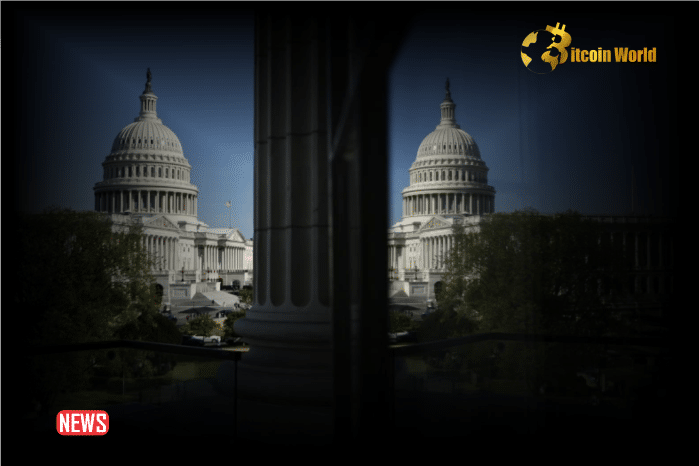Are you a crypto enthusiast concerned about government overreach? The US Senate just renewed Section 702 of the Foreign Intelligence Surveillance Act (FISA), and the crypto community is on high alert. Here’s why this law has everyone talking and what it could mean for your digital assets.
What is Section 702 FISA and Why Should Crypto Holders Care?
Section 702 allows the US government to collect data from tech giants like Google and Facebook without individual warrants. Think of it as a broad net cast to gather foreign intelligence. But here’s the catch: that net can also scoop up data on American citizens, including those involved in the crypto space.
The crypto community, built on principles of privacy and decentralization, views this renewal with suspicion. The law passed the Senate with a 60-34 vote and now awaits President Biden’s signature. This extension of surveillance powers for another two years raises some critical questions:
- Privacy Concerns: Could your crypto transactions be monitored?
- Regulatory Oversight: Will this lead to stricter regulations on crypto businesses?
- Decentralization at Risk: Does this undermine the core principles of a decentralized financial system?
The Debate: Security vs. Privacy
The renewal of Section 702 has ignited a fierce debate. On one side, lawmakers like Senator Elizabeth Warren argue that monitoring the crypto sector is essential for regulatory oversight and combating illicit activities. On the other side, critics like Senator Ron Wyden warn about the potential for misuse and the gathering of unnecessary data on American citizens.
Here’s a breakdown of the opposing viewpoints:
| Proponents of Section 702 Renewal | Critics of Section 702 Renewal |
|---|---|
| Enhanced national security | Potential for abuse and privacy violations |
| Necessary for regulatory oversight of crypto | Risk of overreach and unwarranted data collection |
| Helps in combating illegal activities | Undermines the principles of decentralization |
How Could This Affect Crypto Businesses?
With Section 702 reauthorized, crypto businesses might face increased scrutiny from agencies like the SEC, CFTC, and DOJ. This could mean:
- Stricter Compliance: Crypto companies may need to adhere to more stringent surveillance and data collection norms.
- Increased Audits: Expect more frequent audits to ensure compliance with regulations.
- Greater Transparency: Pressure to be more transparent about transactions and user data.
See Also: Binance Gets Dubai Crypto License Following CZ’s Departure
Cooperation and the Fight Against Illicit Activities
It’s not all doom and gloom. There are instances where crypto companies and law enforcement agencies have successfully collaborated to combat illegal activities. For example, the CEO of Tether has worked with the FBI and the Secret Service on counter-terrorism financing.
This shows that cooperation is possible and can be effective in addressing criminal behavior within the crypto space.
The Future of Crypto: Navigating Surveillance and Decentralization
The crypto industry stands at a critical juncture. The renewal of Section 702 presents both challenges and opportunities. It challenges the core principles of privacy and decentralization, but it also highlights the need for responsible regulation and cooperation with law enforcement.
As discussions about Section 702 continue, it’s crucial for the crypto community to engage in constructive dialogue with lawmakers and regulators. Finding a balance between security and privacy is essential for the long-term success and adoption of cryptocurrencies.
Disclaimer: The information provided is not trading advice. Bitcoinworld.co.in holds no liability for any investments made based on the information provided on this page. We strongly recommend independent research and/or consultation with a qualified professional before making any investment decisions.
#Binance #WRITE2EARN
Disclaimer: The information provided is not trading advice, Bitcoinworld.co.in holds no liability for any investments made based on the information provided on this page. We strongly recommend independent research and/or consultation with a qualified professional before making any investment decisions.


